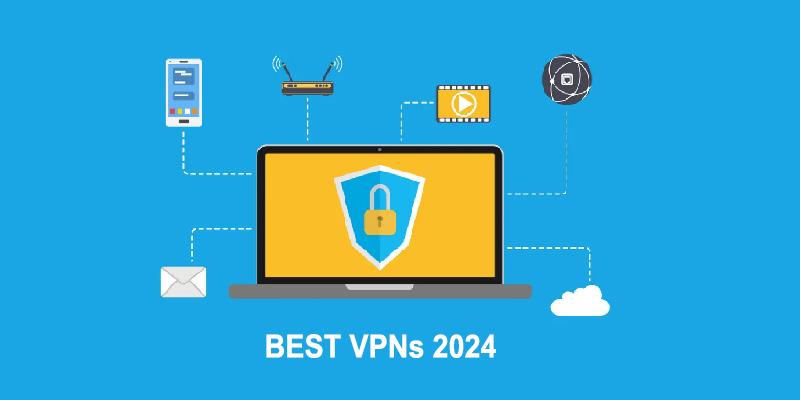Normally it’s safe when you are surfing on the internet, However, at the same time, you are also vulnerable to a range of privacy and security issues, including data breaches, cyber-attacks, ISP tracking, and online censorship. A VPN provides an essential layer of protection, encrypting your internet connection and masking your online activities to ensure a safer and more private browsing experience. Here are the benefits of using a VPN while you are engaging on the internet.
1. Enhanced Online Privacy
A VPN (Virtual Private Network) masks your IP address and encrypts your internet connection, making it much harder for hackers, advertisers, and even your ISP to track your online activities. This ensures your browsing history, personal information, and online communications remain private.
2. Improved Security on Public Wi-Fi
Public Wi-Fi networks in cafes, airports, and hotels are often insecure, making them prime targets for cybercriminals. A VPN secures your connection on these networks, protecting your data from potential hackers who might try to intercept it.
3. Access to Restricted Content
Many websites and online services restrict access based on geographic location. A VPN allows you to bypass these geo-restrictions by masking your IP address and making it appear as if you’re browsing from a different location. This is especially useful for accessing streaming services like Netflix, Hulu, and BBC iPlayer from anywhere in the world.
4. Secure Online Transactions
When shopping or banking online, a VPN encrypts your connection, protecting your financial information from potential cyber threats. This added layer of security is crucial for preventing identity theft and fraud.
5. Avoid Bandwidth Throttling
Some ISPs throttle your internet speed when they detect high-bandwidth activities like streaming or downloading. A VPN can hide your online activities from your ISP, preventing them from throttling your connection and ensuring you get the best possible speeds.
6. Safe Remote Work
For remote workers, a VPN provides a secure connection to the company’s network, protecting sensitive business data from cyber threats. This is particularly important for accessing company resources and communicating with colleagues securely from anywhere.
7. Prevent Tracking and Targeted Ads
Advertisers use your browsing habits to create targeted ads. By hiding your IP address and encrypting your data, a VPN prevents advertisers from tracking your online activities, reducing the number of targeted ads you see.
8. Bypass Censorship
In countries with strict internet censorship, a VPN can help you access blocked websites and social media platforms. By connecting to a server in a different country, you can bypass government-imposed restrictions and enjoy unrestricted internet access.
9. Anonymize Your Online Activity
A VPN provides anonymity by masking your real IP address and routing your internet traffic through a secure server. This makes it difficult for websites, ISPs, and other entities to track your online activity back to you.
10. Enhanced Streaming Experience
With a VPN, you can access a broader range of content on streaming services. By bypassing geo-restrictions, you can watch shows and movies that are unavailable in your region, giving you a more diverse and enriched streaming experience.
Conclusion
Using a VPN offers numerous benefits that enhance your online security, privacy, and freedom. Whether you’re protecting sensitive information, accessing restricted content, or simply browsing the web, a VPN provides a secure and versatile solution for modern internet users.
